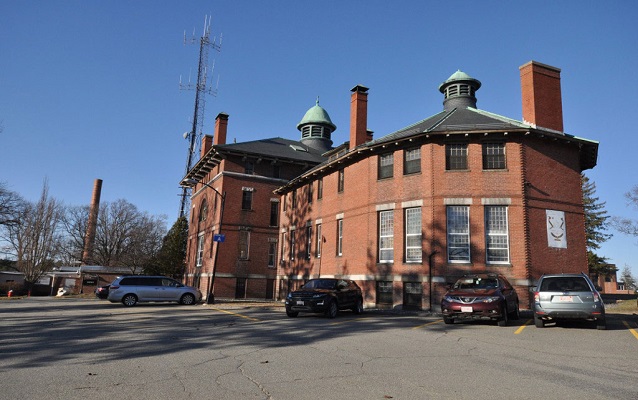Last updated: April 3, 2024
Place
Tewksbury State Hospital

“TewskburyStateHospitalMEMABuilding,” Image by User:Magicpiano, CC BY-SA 4.0,
Tewksbury State Hospital was established in 1852 as one of three state almshouses, along with Bridgewater and Monson. The almshouses represented the state's first venture into care of the poor, a role exclusively filled by the cities and towns up to that time. In 1866, when Tewksbury began accepting the "pauper insane," it became the state's first facility to accept cases of chronic mental health issues. Throughout the twentieth century, it has served as the State Hospital and Infirmary, playing a major role in the care of patients with infectious and chronic diseases. Most of the varied and well-designed buildings on the campus date to the early twentieth century and reflect the important transition from almshouse to infirmary. Tewksbury's history clearly embodies major trends in the care of the poor, sick, and people with disabilities, with its period of significance extending from 1854 to ca. 1940.
Tewksbury State Hospital no longer functions as a hospital; however, it is today home to the Public Health Museum.
